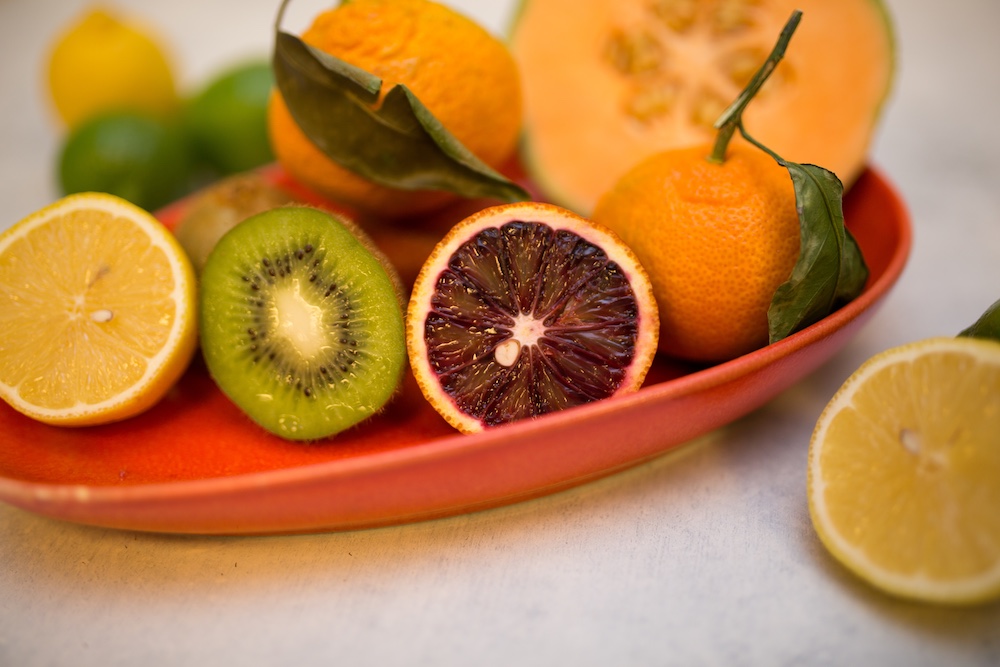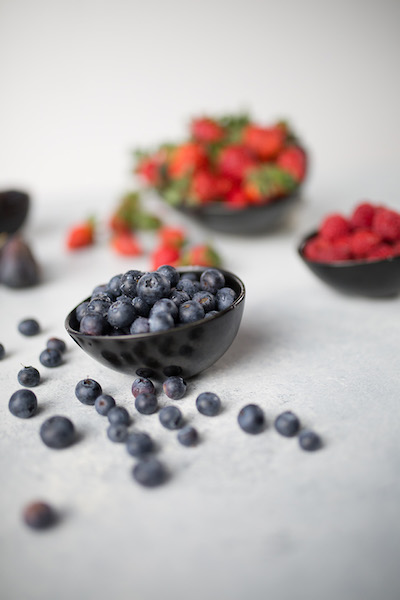Feeling foggy, tired or in a generally bad mood may be directly related to what one eats. Several evidence-based research studies have looked at a variety of foods and nutrients to determine how they may affect mental health, cognition, mood and more.
The good news is that eating a well-balanced diet that includes a range of nutrients will likely boost your brain health! Here's how.
Omega-3 Fatty Acids
All fats are not created equal! Omega-3 fatty acids play an essential role in overall brain health, including cognition and mental health. There are two types of omega-3 fatty acids: EPA (eicosapentaenoic acid) and DHA (docosahexaenoic acid). Areas with higher fish consumption have been associated with a lower prevalence of mood disorders and observational studies also show a positive correlation between fish intake and DHA plasma concentrations in healthy older adults and cognitive health. Seafood, such as oysters and mussels, and fatty fish, including salmon, sardines, trout and tuna, are some of the richest sources of omega-3’s. For those who do not eat seafood, flaxseed is a good source. However, a supplement may be necessary if you are not consuming seafood regularly. The recommended dosage is not exact and ranges from 300 to 2,000 milligrams per day, so be sure to consult with your physician.
A food-focused goal to increase your intake could be to add some canned tuna to your grain bowl, make at least one dinner every week seafood-focused, or top that avocado toast with some smoked trout.
B Vitamins

Research shows a connection between B vitamins and cognitive health. Some B vitamins, including folic acid, vitamin B6 and vitamin B12, control the levels of homocysteine in the blood. Homocysteine is an amino acid that is associated with an increased risk of Alzheimer’s when found in high levels. In addition, B-complex vitamins produce neurotransmitters, such as serotonin, and help regulate energy use in the brain.
Food sources of B vitamins include:
- Whole grains (brown rice, barley, millet)
- Meat (red meat, poultry, fish)
- Eggs and dairy products (milk, cheese)
- Legumes (beans, lentils)
- Seeds and nuts (sunflower seeds, almonds)
- Dark, leafy vegetables (broccoli, spinach, kale)
- Fruits (citrus fruits, avocados, bananas)
A food-focused goal could be to aim for at least three colors on your plate at every meal. Since B-vitamins are found in a variety of foods, this can be a more general (and easy!) way to achieve your goal of eating B-vitamins.
 Flavonoid Foods
Flavonoid Foods
Flavonoids are natural compounds of phytochemicals found in plant foods, aka antioxidants. They act as anti-inflammatories in the body, protecting neurons and possibly protecting and promoting memory, learning and cognitive function. They also have been shown to help the vascular system work properly and promote new cell growth in the brain.
So where’s the best place to find flavonoids? Fruits and veggies! Simply adding a bowl of berries to a meal or snack or throwing a handful of frozen fruit into your oatmeal can add a boost.
Choline Foods
Have you heard of choline? New research is exploring how it may have lasting effects on cognition and prevention of cognitive decline. Made by the body in small amounts, choline provides building material for several other important compounds with diverse functions and interacts with folate and other nutrients. It is also connected to neural networks associated with memory.
Foods with choline include eggs, meat, Brussels sprouts, broccoli, cauliflower, soymilk, wheat germ, peanuts and beans. Consuming these foods is a great way to get choline, though supplementation may be necessary for some, like vegans and vegetarians.
Still looking for ideas to boost your brain? Here are some additional tips and tricks:
- Incorporate magnesium-rich foods into your day to help support sleep, such as sunflower seeds, pumpkin seeds, spinach and almonds.
- Get your vitamin D level checked. Low levels are associated with mental health and depression. Vitamin D is found in egg yolks, fatty fish and sunshine, but a supplement may be necessary.
Study food as medicine in Health-Supportive Culinary Arts.




